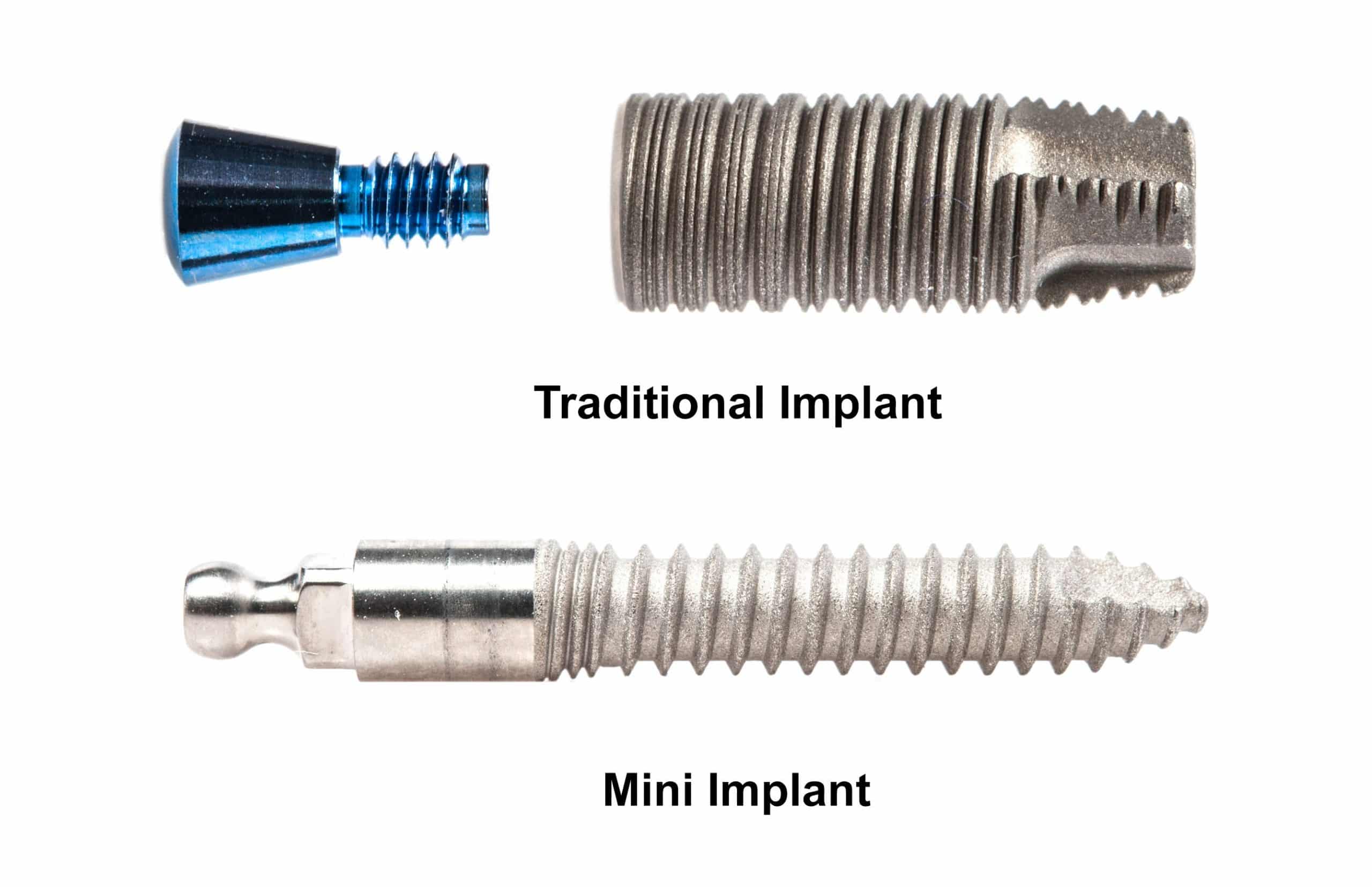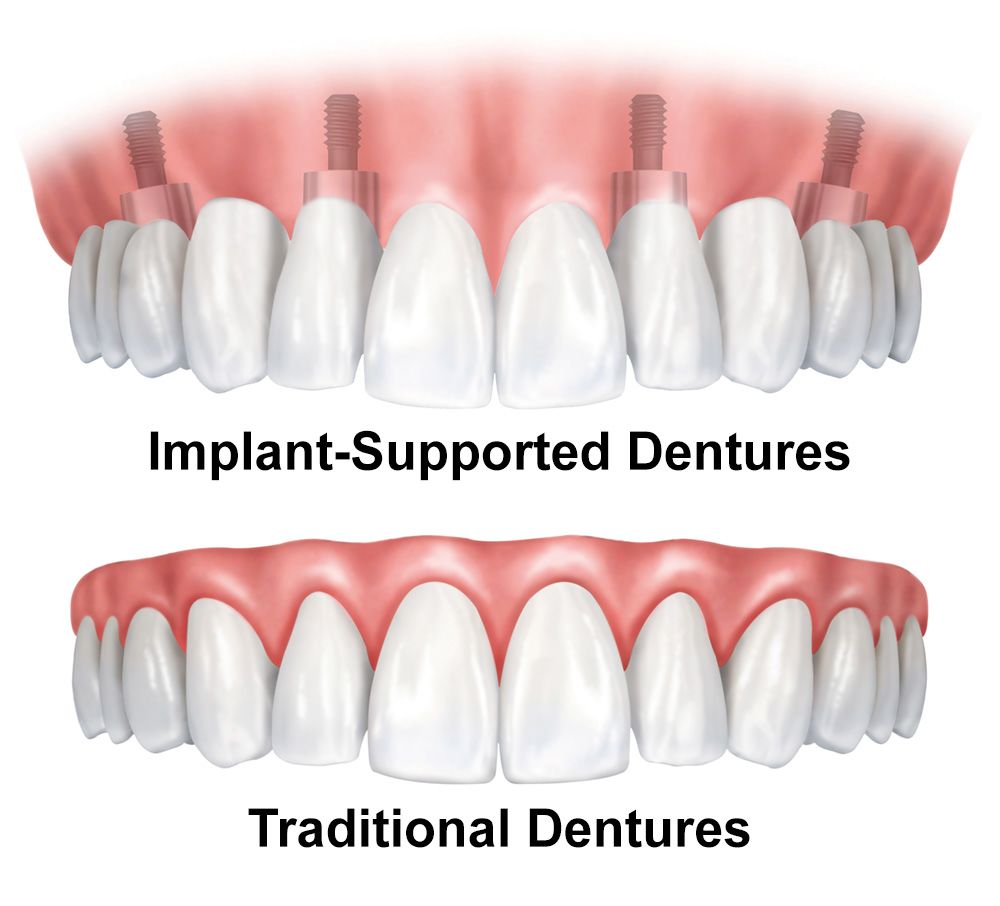Benefits and Risks of Dental Implants
Dental implants are the very best restorative method, but the surgery does pose some risks. Before deciding on this treatment option, patients need to fully understand the benefits and risks of dental implants and the surgical procedure. At our Sterling, VA, dental office, Dr. Richard Hughes provides patients with a thorough consultation, in which he answers all of their questions and explains the specifics of the entire dental implant procedure. As an implant dentist, Dr. Hughes performs all aspects of implant treatment in our office, providing convenience and peace of mind to our patients.
Benefits of Implants
Dental implants are a practical and effective alternative to traditional bridges and dentures.
Comparing Implants to Traditional Bridges
A single dental implant can replace a single tooth, so patients no longer need to have a traditional dental bridge placed. With a traditional bridge, two natural teeth in good health must be filed down to accommodate dental crowns and hold a prosthetic tooth in place. In contrast, dental implants are placed directly in the jaw and do not rely on healthy teeth for support. An implant post replaces a tooth root to hold a prosthetic crown permanently and securely in place.
Comparing Implants to Traditional Dentures
Two or more implants can secure a partial denture, and four to six will typically be used to hold a full denture. Dr. Hughes has many options to retain implant-supported dentures. He offers mini dental implants, which work well for patients who have lost jawbone density over time. In addition, he is trained in the All-on-4® procedure, in which patients have just four implants placed. With All-on-4®, the patient can also receive a permanent denture the same day as the surgery is performed.

In comparison to traditional dentures, all types of implant-retained dentures provide dependable retention. With implants, dentures will not wobble, slip, or feel loose. In fact, patients can confidently eat all their favorite foods. Perhaps best of all, implant-retained dentures renew a person’s self-confidence, because their teeth will not fall out and cause embarrassment.

Another important benefit of implants is that they promote jawbone retention. When teeth are absent, special signals are not received that the jawbone is needed. As a result, the body sends nutrients elsewhere and the jawbone loses density and becomes brittle. Implants mimic the effect of tooth roots, maintaining strong, dense bone tissue.
Missing teeth cause the jaw to atrophy. Unlike traditional restorations, implants promote jawbone retention for overall improved oral health.
If a patient maintains good oral health and does not suffer from injury or disease that affects the mouth, dental implants can last for decades – even a lifetime.
Risks with Implant Surgery
Most of the risks for implant failure involve improper placement of the implants in the jaw. Though issues are rare – implants have a 95-98 percent success rate overall – patients do face some risks during and following implant surgery:
- Harm to surrounding teeth and tissues during the surgery
- Nerve damage that may cause numbness or tingling
- Issues with the sinus cavity (for upper implants only)
- Infection during surgery and recovery
To reduce your risk for potential complications, you will need to precisely follow your pre- and post-operative instructions. If you smoke, you should quit smoking to ensure the best chances of success.
Learn More Benefits and Risks of Dental Implants
Dr. Hughes is a respected and highly trained implant dentist who has performed many successful implant surgeries throughout his career. If you have any additional questions about the benefits, risks, or implant placement procedure, please contact our dental office today. We are happy to answer questions and schedule your personal consultation and assessment with Dr. Hughes.

